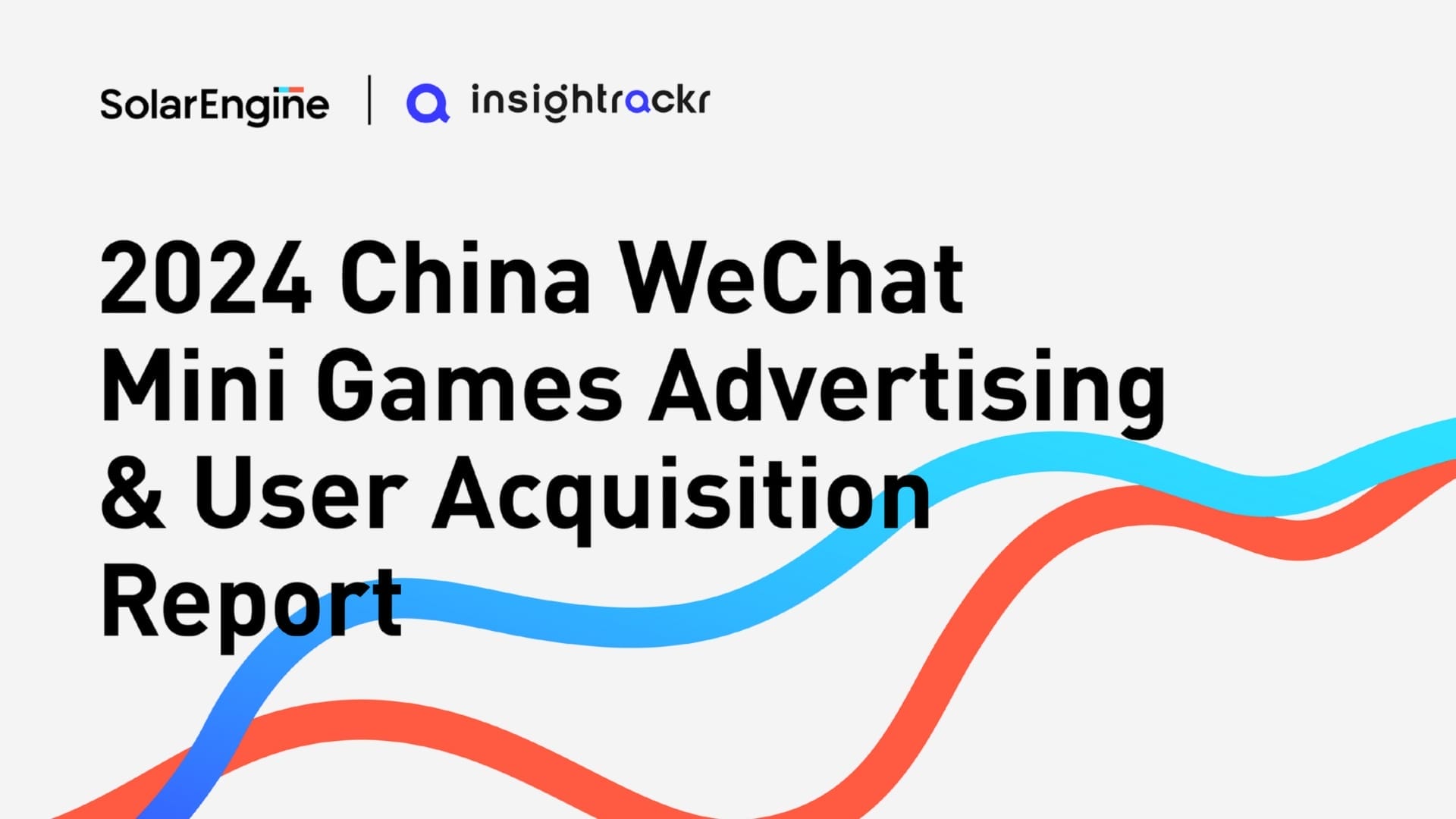WeChat mini-game advertising sees 113% increase, creating new opportunities for developers
WeChat mini-game ads grew 113% in 2024, opening major growth chances for developers aiming to scale in China’s fast-moving mobile game market.

The WeChat mini-game advertising market has seen rapid growth, with a 113% year-on-year (YoY) jump in the number of games running ads. This is based on the latest China WeChat Mini Games Advertising & User Acquisition Report, released by SolarEngine and Insightrackr. The sharp rise highlights a growing opportunity for developers looking to expand in China’s fast-moving mobile gaming industry.
More than 19,000 WeChat mini-games ran ads in 2024
From January to October 2024, over 18,400 WeChat mini-games launched advertising campaigns, more than double the 8,600 games during the same period in 2023. By the end of the year, the total number had reached 19,937, up from 10,300 in 2023. This rapid growth shows how quickly advertising is becoming a key part of the mini-game ecosystem.
The number of ad creatives also soared, showing a 107% YoY increase. In total, mini-games produced 3.7 million ad creatives between January and October 2024, compared to 1.8 million in the same period the previous year. By the end of 2024, the full-year total was expected to hit 4.3 million. This trend points to a highly competitive and creative market, where developers constantly try to stand out.
The report highlights that many developers now rely on low-cost, high-volume ad creatives to scale their user acquisition efforts. Several creative trends have shaped the space:
- 55.9% of WeChat mini-game ads are image-based, while 44.1% are video ads. This is very different from standard mobile games, where video ads account for 59.4% of creatives.
- Vertical ads are the most common, making up 61% of mini-game ads. Horizontal ads make up 35.3%, while square formats account for just 3.7%.
- Only 5.3% of mini-game ads feature real people, compared to 10.6% in the wider mobile game ad market.
While low-cost creatives and fast production remain key, the report suggests that developers will soon need to focus on higher-quality creative optimisation to stay competitive. As competition grows, those who adopt data-driven creative strategies are likely to see stronger user engagement and better conversion rates.
Rita Ju, Head of SolarEngine, said: “The WeChat mini-game space is undergoing a massive transformation, offering developers a lucrative, fast-growing advertising environment. As advertising intensity increases, it’s critical for developers to not only focus on creative innovation but also to leverage data-driven insights and precise marketing analysis. Tools that enable high-quality user behaviour analysis, precise targeting, and efficient data integration are becoming crucial for success.”
Whiteout Survival shows how creative scaling drives success
The report also highlights a case study of Whiteout Survival, a 4X strategy and simulation game, which successfully adapted its advertising approach for China’s WeChat mini-game market after seeing success internationally.
- The game’s ad creatives increased 30 times between September and mid-October, reflecting an aggressive push for user acquisition.
- The advertising campaign used a multi-platform strategy. Tencent Ads led the way, supported by Ocean Engine (Douyin), Kuaishou (Magnetic Engine), Weibo Ads, and Bilibili.
- Early market feedback was positive, and the strong return on investment (ROI) allowed the game to rapidly scale its campaign further.
As the WeChat mini-game ecosystem evolves, more Chinese mini-game developers are also expanding globally. This highlights a broader trend — mini-games are becoming a key focus for large platforms worldwide, with several ecosystems building their own mini-programs and gaming platforms.
To keep up, developers and advertisers will need to fine-tune their growth strategies:
- With ad saturation rising, using strong storytelling and high-quality creatives will help capture attention.
- Data-driven scaling will be essential. Developers should use real-time performance data to guide their targeting and budget choices.
- Diversifying ad placements across multiple platforms — including Tencent Ads, Ocean Engine, and others — will help maximise reach.
In this constantly changing market, developers and advertisers need reliable tools to manage campaigns effectively. SolarEngine offers developers a way to optimise campaigns across platforms like WeChat and Douyin. With SolarEngine’s support, developers can fine-tune their targeting, improve engagement, and boost their return on investment as mini-games become a global trend.
Looking ahead, SolarEngine plans to expand its platform integrations. This will include connections with platforms like Facebook and Telegram, along with emerging mini-game networks. These updates will help developers stay equipped with the latest tools they need to succeed.
















